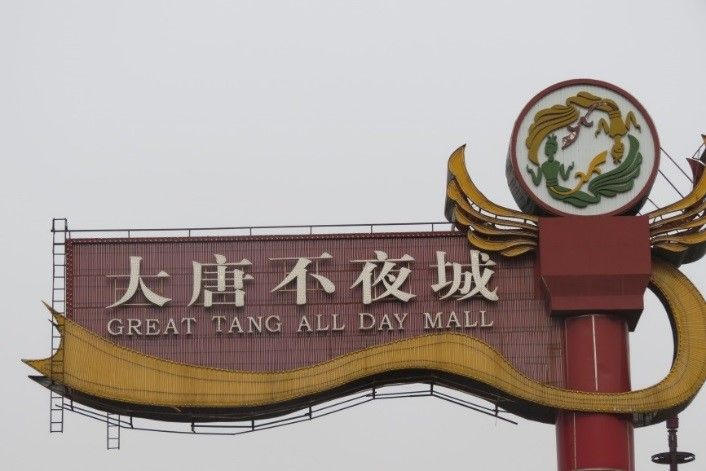The role of history, nostalgia and heritage in the construction and indigenisation of state led political and economic identities in contemporary China
Andrew Law

IMAGE: Image of one of the billboards at the Great Tang All Day Mall – Qujiang district, Xi’an.
Abstract
Over the years interlocutors have pointed to the role of elites in the selective utilisation of history, memory, nostalgia and heritage within modern China; particularly, scholars have pointed to the role of Confucianism, humiliation history and totalitarian nostalgia within these hegemonic processes. However, with the exception of work on Shanghai, there is a paucity of investigations on the role of local elites in the utilisation of local historical-geographic discourses within contemporary China. Acknowledging this lacuna in the extant literature, this chapter argues that ‘local elites’–defined as coalitions of local officials, developers, commercialists and/or urban conservationists–are increasingly coming together to utilise local histories, memory, nostalgia and heritage as a tool of urban marketing and place-branding. To unpack this argument, this chapter therefore explores local state coalitions dedicated to urban development in the cities of Shanghai, Wuhan and Xi’an.
Law, A. “The role of history, nostalgia and heritage in the construction and indigenisation of state led political and economic identities in contemporary China.” In The Heritage Turn in China: Reinvention, Dissemination and Consumption of Heritage, edited by C. Ludwing, L. Walton and Y.W. Wang, 215-238. Amsterdam: Amsterdam University Press: International institute of Asian Studies in association with Amsterdam University Press, 2020. https://www.jstor.org/stable/j.ctv131bsxp?turn_away=true



